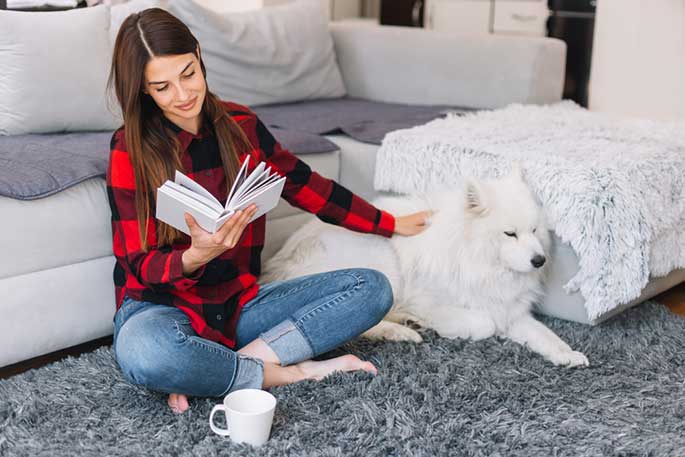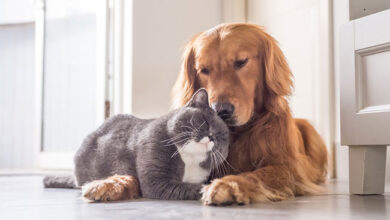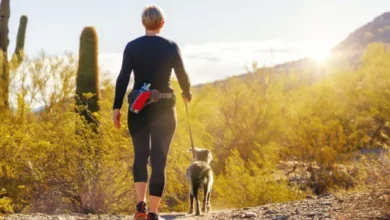
Being a dog owner is a rewarding experience, but it also comes with a lot of questions and responsibilities. Whether you’re a new dog parent or have had dogs for years, you might find yourself seeking answers to ensure your furry friend’s health and happiness. Here are some commonly asked questions by dog owners, along with insights and tips to help you provide the best care for your pet.
1. How Often Should I Feed My Dog?
The frequency of feeding depends on your dog’s age, size, and activity level. Puppies generally need three to four meals a day, while adult dogs can be fed twice a day. Always follow your vet’s recommendations and monitor your dog’s weight to adjust portions as needed.
2. What Type of Food Is Best for My Dog’s Breed and Age?
Choose high-quality dog food appropriate for your dog’s age, breed, and size. Puppies, adults, and senior dogs have different nutritional needs. Consult your veterinarian to select the best diet, considering any specific health concerns your dog might have.
3. How Much Exercise Does My Dog Need Daily?
Exercise requirements vary by breed, age, and health. Generally, dogs need at least 30 minutes to 2 hours of exercise daily. High-energy breeds may require more activity, while older or less active dogs may need less. Regular walks, playtime, and mental stimulation are crucial for a healthy, happy dog.
4. How Do I Housebreak My Puppy?
Housebreaking a puppy involves consistency, patience, and positive reinforcement. Establish a regular bathroom schedule, take your puppy outside frequently, and reward them when they eliminate outside. Crate training can also be helpful in preventing accidents indoors.
5. When Should I Start Training My Dog?
Training should begin as soon as you bring your puppy home. Start with basic commands like “sit,” “stay,” and “come.” Early socialization and obedience training are essential for a well-behaved dog. Positive reinforcement techniques, such as treats and praise, are effective for training.
6. How Can I Stop My Dog from Barking Excessively?
Excessive barking can be due to boredom, anxiety, or a need for attention. Identify the cause and address it accordingly. Provide plenty of exercise, mental stimulation, and interactive toys. Training commands like “quiet” can also help manage barking behavior.
7. What Are Common Signs of Illness in Dogs?
Common signs of illness include changes in appetite or water consumption, lethargy, vomiting, diarrhea, coughing, sneezing, and changes in behavior. If you notice any of these symptoms, consult your veterinarian promptly.
8. How Often Should I Take My Dog to the Vet?
Regular veterinary visits are essential for your dog’s health. Puppies should see the vet frequently for vaccinations and check-ups. Adult dogs typically need an annual visit, while senior dogs may require more frequent check-ups to monitor their health.
9. What Vaccinations Does My Dog Need?
Core vaccinations for dogs include rabies, distemper, parvovirus, and adenovirus. Depending on your location and lifestyle, your vet may recommend additional vaccines such as bordetella, Lyme disease, and canine influenza.
10. How Do I Prevent and Treat Fleas and Ticks?
Prevent fleas and ticks with regular use of vet-recommended topical treatments, collars, or oral medications. Check your dog for ticks after outdoor activities, and promptly remove any ticks you find. Keep your home and yard clean to reduce flea infestations.
11. How Can I Socialize My Dog Properly?
Socialization is crucial for a well-adjusted dog. Expose your dog to various environments, people, and other animals from an early age. Positive experiences during socialization help prevent behavioral issues and anxiety.
12. What Is the Best Way to Groom My Dog?
Grooming requirements vary by breed. Regular brushing, nail trimming, and bathing are essential. Some breeds may need professional grooming. Keep your dog’s ears clean and teeth brushed to prevent infections and dental issues.
13. How Do I Handle My Dog’s Separation Anxiety?
Separation anxiety can be managed with gradual desensitization, providing interactive toys, and creating a safe space for your dog. In severe cases, consult your vet or a professional trainer for additional strategies.
14. What Should I Do if My Dog Eats Something Toxic?
If your dog ingests something toxic, contact your vet or an emergency animal clinic immediately. Keep common toxic items like chocolate, grapes, and certain plants out of reach, and have the contact information for poison control readily available.
15. How Do I Travel Safely with My Dog?
Use a pet carrier or crate for safe travel. Ensure your dog is comfortable and secure during the journey. Pack essentials like food, water, and a first-aid kit. Take regular breaks on long trips for exercise and bathroom breaks.
16. When Should I Spay or Neuter My Dog?
The ideal age for spaying or neutering depends on your dog’s breed and health. Typically, dogs are spayed or neutered between six months and one year. Consult your vet to determine the best time for your dog.
17. What Are Some Good Toys to Keep My Dog Entertained?
Interactive toys, puzzle feeders, and chew toys are great for keeping your dog entertained. Rotate toys to maintain your dog’s interest and provide mental stimulation.
18. How Do I Introduce a New Pet to My Dog?
Introduce new pets gradually and in a controlled environment. Allow them to sniff and observe each other from a distance before allowing direct interaction. Supervise their initial interactions to ensure they are positive.
19. What Should I Do if My Dog Is Aggressive?
If your dog shows signs of aggression, consult a professional trainer or behaviorist. Identify triggers and work on desensitization and counter-conditioning techniques. Safety and patience are key in managing aggression.
20. How Can I Improve My Dog’s Dental Health?
Regular brushing is the best way to maintain your dog’s dental health. Use dog-specific toothpaste and brushes. Dental chews and professional cleanings by your vet also help keep teeth and gums healthy.
Conclusion
Caring for a dog involves continuous learning and adaptation. By understanding and addressing these commonly asked questions, you can ensure your dog lives a happy, healthy, and fulfilling life. Always consult your veterinarian for personalized advice and support in caring for your furry friend.



